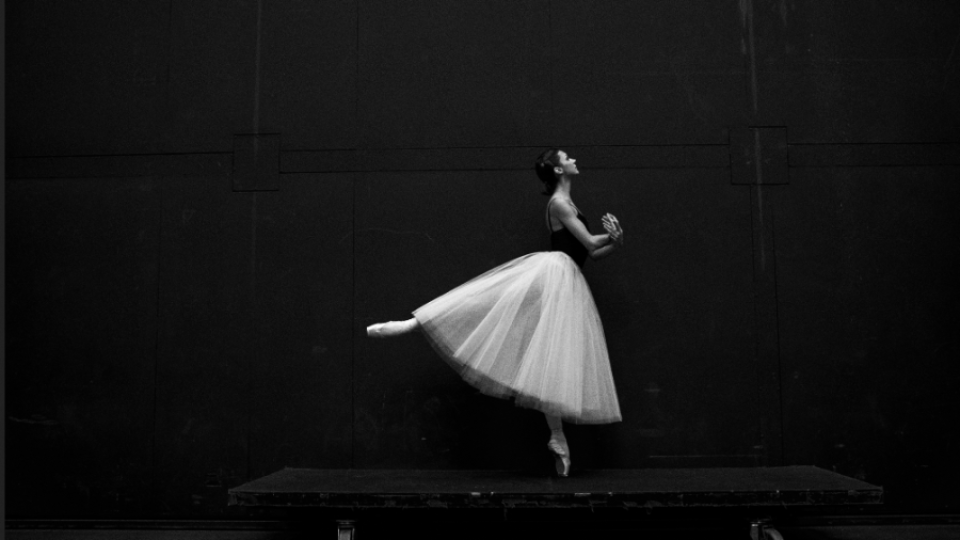October 17, 2024
MANILA – The allure of ballerinas has long dawned on little girls, with most awakenings pointed at Barbie films such as “Swan Lake” (2003) and “12 Dancing Princesses” (2006) alongside children’s storybook character Angelina Ballerina, who embodies the original coquette girl that we know growing up.
As these young girls who once aspired to be ballerinas have grown up, we are now witnessing the rise of TikTok’s balletcore—a fashion aesthetic that takes cues from ballet and the clothing associated with it. This trend emphasizes femininity and romanticism, featuring soft fabrics and subtle hues in everyday wear. But it’s more than just fashion, it embodies a lifestyle, too.
Today, bows and ballet flats are making a widespread comeback, often paired with sheer and bubble skirts to perfect the balletcore aesthetic. Brands like Sandy Liang, Miu Miu, and Reformation have embraced this rising trend, incorporating ballet-inspired designs into their collections. Even Spring/Summer 2025 runway shows, including Simone Rocha’s tulle creations and Ferragamo’s wrap tops and leotards, have fully embraced balletcore.
But what’s really behind everyone’s fascination with balletcore?
Nostalgia and romanticism
As young girls, we were enchanted by the world of ballet, often captivated by fairytale heroines who danced gracefully in pink pastel dresses and pointe shoes, alongside their prince charming. Classical music would play as they twirled in a blissful celebration of newfound love. It was a dreamlike escape where dance and romance intertwined, creating a world where happiness was just a graceful step away.
The connection between ballet and fairy tales is neither new nor uncommon in dance history or literary studies. In fact, in a thesis entitled, “Fairy Tales en pointe: Fairy Brides, Ballerinas, and Ballets that Made the Tale,” Jacqueline Nichole Smith pointed out that Romantic and fairy-tale ballets have played a significant role in dance since the early 19th century. Scholars like Richard G. Kraus and Sarah Chapman attribute Romanticism in the arts, along with ballets such as “La Sylphide” (1832) and “Giselle” (1841), to the beginning and end of ballet’s Golden Age in Europe.
This intertwining of ballet and fairy tales goes beyond mere aesthetics and fashion; it reflects our longing for magic in our lives. These ballet themes often feature transformation and the triumph of love, inviting women to escape reality and step into a realm where dreams can come true.
In a world that sometimes feels overwhelmingly mundane, the nostalgia for ballet and its fairytale narratives allows us to reconnect with the innocence and wonder of childhood. It reminds us that, through art and imagination, we can still find a sense of magic in our lives, rekindling the belief that love and beauty can indeed prevail.
Reclaiming the ballerina within us
As we transition from childhood into our preteen years, we often feel pressured to shed our girlishness in favor of a stronger, more independent identity. In the process, we tend to forget the pink dresses, tulle skirts, and pointe shoes, causing the ballerina within us to fade away. This shift often leads to a complex relationship with femininity, as hyper-femininity becomes stigmatized in our pursuit of strength and empowerment.
Ballet, with its emphasis on grace and beauty, epitomizes this hyperfeminine ideal. Yet, this association can make us hesitant to embrace its elements as we grow older. We may perceive ballet as a representation of fragility, believing that to be taken seriously, we must adopt a more hardened exterior.
Reclaiming ballet’s hyperfeminine aspects can be a powerful act of self-acceptance. Instead of viewing femininity as a weakness, we can celebrate its complexities. Embracing the fluidity and strength of ballet can empower us to redefine what it means to be feminine—one that encompasses both vulnerability and strength, beauty and power.
After coming to terms with the harsh realities of adulthood, we often seek solace in our childhood memories, curling up under the covers on cold nights. We revisit the movies and shows we once adored, and in this nostalgia, we reconnect with the little ballerina within us.
TikTok’s balletcore trend allows us to revisit our childhood by embracing feminine items now that we have our own spending money. For some, it serves as a healing experience for those who aspired to dance but faced financial obstacles. For others, it’s a way to revive the styles they loved as kids. There’s nothing wrong with wearing a tutu skirt just to reconnect with that little girl inside us.


